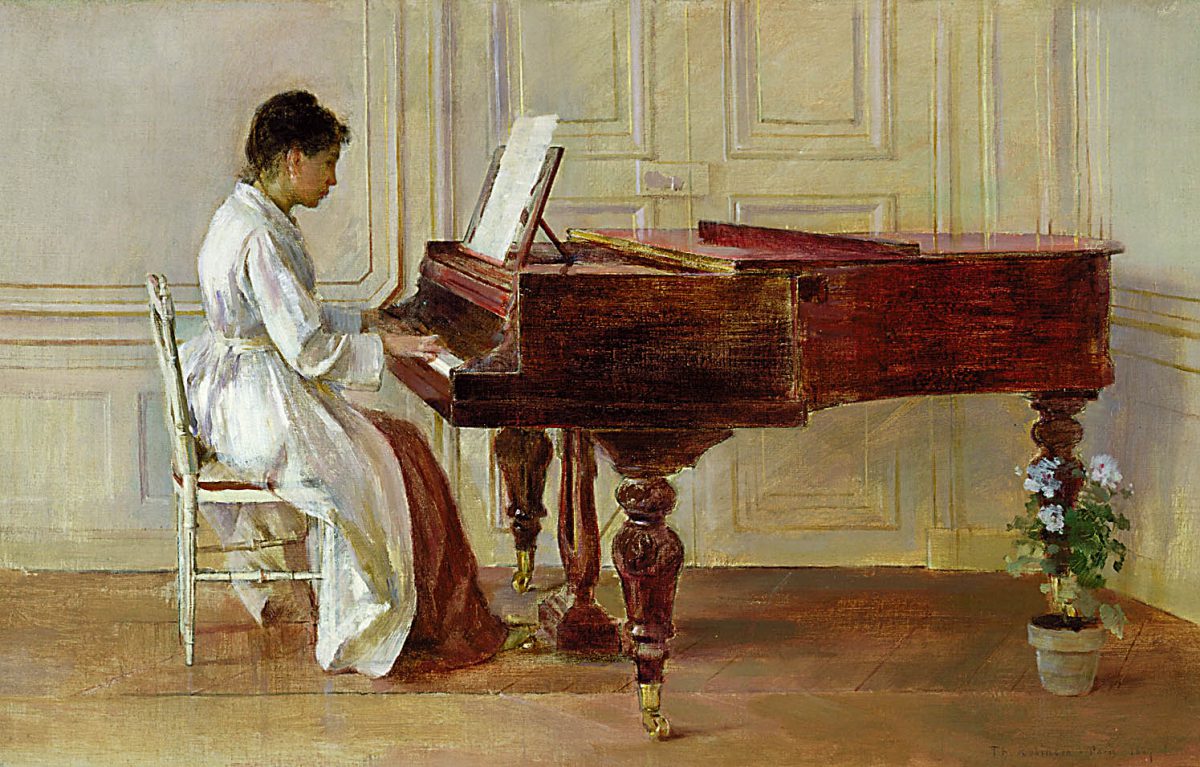Why do we listen to our favourite music over and over again? Because repeated sounds work magic in our brain.
What is music? There’s no end to the parade of philosophers who have wondered about this, but most of us feel confident saying: вЂI know it when I hear it.’ Still, judgments of musicality are notoriously malleable. That new club tune, obnoxious at first, might become toe-tappingly likeable after a few hearings. Put the most music-apathetic individual in a household where someone is rehearsing for a contemporary music recital and they will leave whistling Ligeti. The simple act of repetition can serve as a quasi-magical agent of musicalisation. Instead of asking: вЂWhat is music?’ we might have an easier time asking: вЂWhat do we hear as music?’ And a remarkably large part of the answer appears to be: вЂI know it when I hear it again.’
Psychologists have understood that people prefer things they’ve experienced before at least since Robert Zajonc first demonstrated the вЂmere exposure effect’ in the 1960s. It doesn’t matter whether those things are triangles or pictures or melodies; people report liking them more the second or third time around, even when they aren’t aware of any previous exposure. People seem to misattribute their increased perceptual fluency – their improved ability to process the triangle or the picture or the melody – not to the prior experience, but to some quality of the object itself. Instead of thinking: вЂI’ve seen that triangle before, that’s why I know it,’ they seem to think: вЂGee, I like that triangle. It makes me feel clever.’ This effect extends to musical listening. But evidence has been accumulating that something more than the mere exposure effect governs the special role of repetition in music.
To begin with, there’s the sheer amount of it. Cultures all over the world make repetitive music. The ethnomusicologist Bruno Nettl at the University of Illinois counts repetitiveness among the few musical universals known to characterise music the world over. Hit songs on American radio often feature a chorus that plays several times, and people listen to these already repetitive songs many times. The musicologist David Huron at Ohio State University estimates that, during more than 90 per cent of the time spent listening to music, people are actually hearing passages that they’ve listened to before. The play counter in iTunes reveals just how frequently we listen to our favourite tracks. And if that’s not enough, tunes that get stuck in our heads seem to loop again and again. In short, repetition is a startlingly prevalent feature of music, real and imagined.
In fact, repetition is so powerfully linked with musicality that its application can dramatically transform apparently non-musical materials into song. The psychologist Diana Deutsch, at the University of California, San Diego, discovered a particularly powerful example – the speech-to-song illusion. The illusion begins with an ordinary spoken utterance, the sentence вЂThe sounds as they appear to you are not only different from those that are really present, but they sometimes behave so strangely as to seem quite impossible.’ Next, one part of this utterance – just a few words – is looped several times. Finally, the original recording is represented in its entirety, as a spoken utterance. When the listener reaches the phrase that was looped, it seems as if the speaker has broken into song, Disney-style.



 I just spent eight weeks working on a screenplay ten hours a day while listening to the same three albums—Popol Vuh: Einsjager und Siebensjager (1974);В The Six Parts Seven: Casually Smashed to Pieces (2007); and the Jerome Morass soundtrack to the 1957 film The Big Country—on infinite repeat. All the tracks were AAC files that I had downloaded from the iTunes Music Store, and I was listening to them through a pair of small, attractive podules that connected to my iMac through its FireWire port. This is, roughly, the setup that I have been using for a long time now, since before there was an iTunes, or an iPod, or a Napster, back when the only MP3s available were those you had ripped yourself. And though I also listen to music in the kitchen, in the car, on airplanes, and while running, given the amount of time that I spend at my desk, and the fact that I listen to music constantly while writing, over the past ten years I have probably listened to more music in the form of MP3s playing through cute little pods placed about three feet from my head than in any other way. So I was surprised, last week, when for no apparent reason, while writing a big Martian air battle scene, I looked up from the iMac’s monitor to one of those cute little FireWire ovoids, as Vuh lead guitarist Daniel Fichelscher attempted unbelievably intricate and beautiful things on the title track of Einsjager, and thought: Dude, what’s with the Fisher Price speakers?В
I just spent eight weeks working on a screenplay ten hours a day while listening to the same three albums—Popol Vuh: Einsjager und Siebensjager (1974);В The Six Parts Seven: Casually Smashed to Pieces (2007); and the Jerome Morass soundtrack to the 1957 film The Big Country—on infinite repeat. All the tracks were AAC files that I had downloaded from the iTunes Music Store, and I was listening to them through a pair of small, attractive podules that connected to my iMac through its FireWire port. This is, roughly, the setup that I have been using for a long time now, since before there was an iTunes, or an iPod, or a Napster, back when the only MP3s available were those you had ripped yourself. And though I also listen to music in the kitchen, in the car, on airplanes, and while running, given the amount of time that I spend at my desk, and the fact that I listen to music constantly while writing, over the past ten years I have probably listened to more music in the form of MP3s playing through cute little pods placed about three feet from my head than in any other way. So I was surprised, last week, when for no apparent reason, while writing a big Martian air battle scene, I looked up from the iMac’s monitor to one of those cute little FireWire ovoids, as Vuh lead guitarist Daniel Fichelscher attempted unbelievably intricate and beautiful things on the title track of Einsjager, and thought: Dude, what’s with the Fisher Price speakers?В